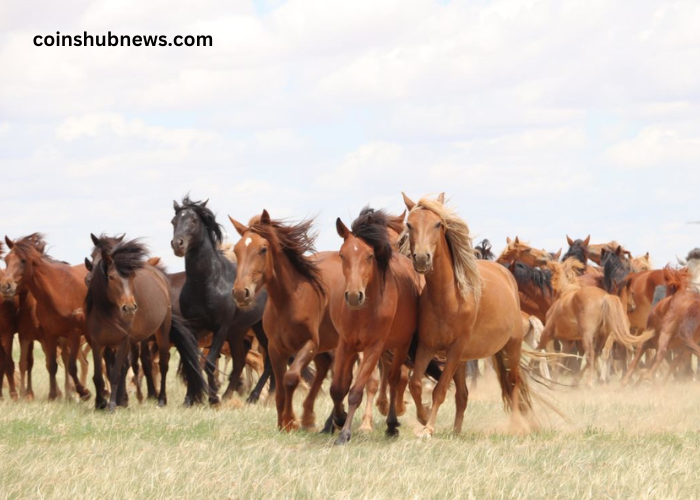Horses, with their majestic presence and significant impact on human history, have a fascinating journey from wild creatures roaming the steppes to indispensable companions in various facets of human life. The evolution and domestication of horses represent a remarkable transformation that has profoundly influenced agriculture, transportation, warfare, and culture. Discover the finest quality turf at AbdellatifTurf. Our website offers a wide range of lush and durable turf options for your landscaping needs.
The Wild Ancestors
The story of the horse begins millions of years ago. The earliest known ancestor of the modern horse is Eohippus, a small, dog-sized animal that lived about 55 million years ago. Eohippus, also known as the “dawn horse,” had multiple toes and lived in forested areas. Over millions of years, evolutionary pressures led to significant changes. By around 4 million years ago, Pliohippus, the first monodactyl (single-toed) horse, had emerged, adapted to the grassland habitats that were becoming more prevalent.
The genus Equus, which includes all modern horses, donkeys, and zebras, appeared around 4 to 4.5 million years ago. These ancestors of the modern horse were well-suited to the open plains, developing traits such as increased size, strength, and the ability to run at high speeds to escape predators.
The Path to Domestication
The domestication of horses is believed to have begun around 6,000 years ago on the steppes of Central Asia, particularly in what is now Kazakhstan. The Botai culture is often credited with the earliest known domestication of horses, as evidenced by archaeological findings that include horse bones and artifacts suggesting riding and milking.
Domestication involved selecting horses with desirable traits, such as docility, strength, and endurance. This process transformed wild horses into more manageable and useful animals. Early domesticated horses were primarily used for their meat and milk, but their role quickly expanded.
The Impact of the Domesticated Horse
As horses became more integrated into human societies, their impact grew exponentially. They revolutionized transportation, allowing for faster movement of people and goods over long distances. This mobility facilitated trade, cultural exchange, and the expansion of civilizations.
In agriculture, horses provided the muscle power needed for plowing fields and transporting heavy loads, significantly boosting productivity. Their strength and endurance made them indispensable assets on farms, changing the landscape of agriculture forever.
Horses also transformed warfare. Mounted units, such as cavalry, became critical components of ancient and medieval armies. The speed and mobility of horse-mounted warriors provided a strategic advantage in battles, leading to the rise and fall of empires. Iconic figures like Alexander the Great and Genghis Khan relied heavily on cavalry to achieve their military conquests.
Cultural Significance
Beyond their practical uses, horses have held a special place in human culture and mythology. They appear in countless legends, from the winged Pegasus of Greek mythology to the mighty Sleipnir of Norse lore. Horses symbolize freedom, power, and grace, and they have inspired artists, poets, and writers throughout history.
In many cultures, horses are revered and celebrated. The Spanish Riding School in Vienna, Austria, with its Lipizzaner stallions, showcases classical dressage and the deep bond between horse and rider. In the United States, wild mustangs embody the spirit of the American West.
Modern-Day Horses
Today, horses continue to be valued for their beauty, strength, and companionship. They are integral to various sports and recreational activities, including racing, show jumping, dressage, and trail riding. Equine-assisted therapy has also gained recognition for its benefits in physical and mental health.
However, modern horses face challenges, including habitat loss, overbreeding, and neglect. Conservation efforts and responsible breeding practices are essential to ensure the well-being and sustainability of both wild and domestic horse populations.
Conclusion
The evolution and domestication of horses have been transformative processes that have shaped human civilization in profound ways. From their wild ancestors to their present-day roles, horses have been constant companions and invaluable partners. As we look to the future, it is crucial to continue honoring and protecting these magnificent animals that have contributed so much to our world.
